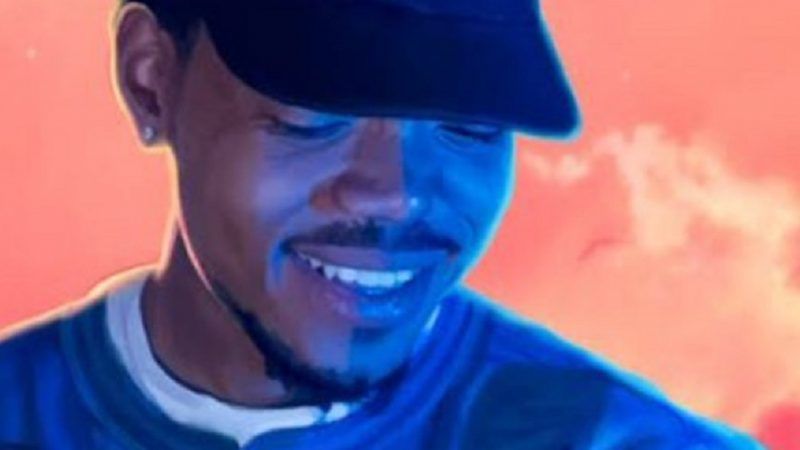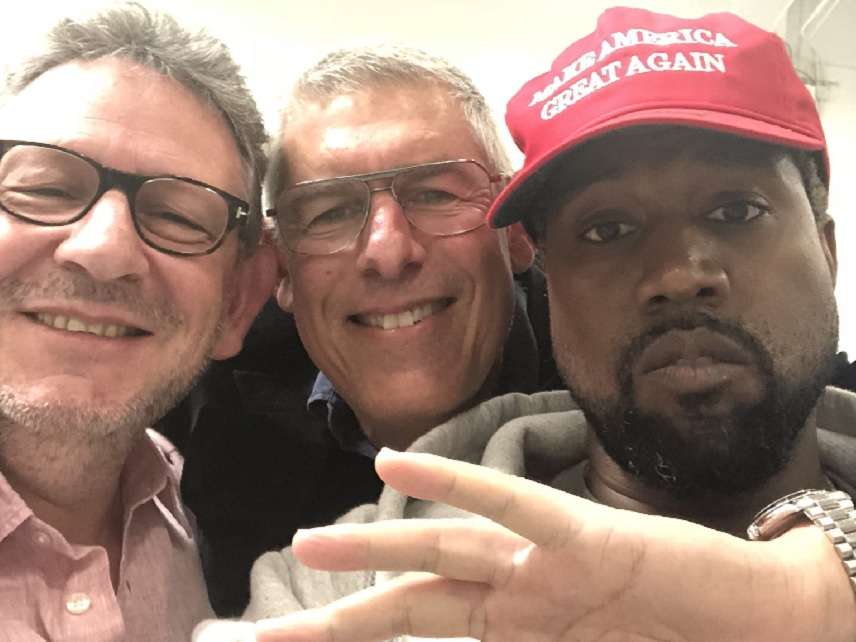'Black People Don't Have To Be Democrats'
Chance The Rapper says the unthinkable and takes it back. But he's right, and not just about African Americans.

There's a fascinating and important story about moribund political alliances playing out adjacent to the spectacle of rap god Kanye West controversially tweeting "love," if not actual support, for President Donald Trump.
One of West's proteges, Chance The Rapper, initially supported his "mentor" and "big homie" with several tweets, including this one:
Black people don't have to be democrats.
— Chance The Rapper (@chancetherapper) April 25, 2018
But that was Wednesday. Earlier today, Chance mostly recanted his apostasy, writing:
I'd never support someone [such as Trump] who'd talk about Chicago as if it's hell on earth and then take steps to make life harder for the most disenfranchised among us….My statement about black folk not having to be democrats (though true) was a deflection from the real conversation and stemmed from a personal issue with the fact that Chicago has had generations of democratic officials with no investment or regard for black schools, neighborhood, or black lives. But again, said that shit at the wrongest time.

Chance is certainly right about his hometown's longstanding Democratic rule—the last time the Windy City had a Republican mayor was back in 1931. (As with many industrial cities, control there flipped from Prohibition-supporting GOP machines to Democratic machines due to changing demographics and shifting attitudes toward Catholic and Jewish immigrants.) And as he grudgingly acknowledges, Democratic rule in Chicago hasn't been good for African Americans. The city's police department routinely violates the rights of black and Latino residents, according to a scathing Department of Justice report issued last year. Massively powerful unions have blocked reforms not just of police but of awful schools, while extorting generous pensions and benefits that have brought the city to the edge of bankruptcy and kept it from providing basic services. Chance himself has donated $1 million to Chicago's schools, which have been deemed the country's worst at least since 1987.
Chance was immediately called out as a hypocrite for defending Kanye West. It's not difficult to understand why he felt a need to separate himself from his comments about blacks not needing to be Democrats. Over the past 70 years, no voting bloc has been more identified with the Democratic Party than blacks. Since 1948, when the Democrats inserted a civil rights plank in their platform, a majority of blacks have identified as Democrats. No Republican presidential candidate has pulled more than 15 percent of the African-American vote since 1960, when Nixon received 32 percent against John F. Kennedy.
Yet Chance's comments—however fleeting and quickly countermanded—point to the fact that Democrats do not and should not have a lock on the black vote. The party is able to get by partly because of its longstanding defense of civil rights and its welcoming attitude to minorities. Such comity is mostly missing among Republicans, who at best ignored blacks when not accusing them of criminality and massive welfare fraud while offering a soft landing for former segregationists such as South Carolina's Strom Thurmond.
But absent concrete steps to address such urgent issues as criminal justice reform, school choice, occupational licensing, and the drug war, all of which disproportionately affect minority populations, there's no reason to assume that black support for Democrats will continue, any more than publicly regulated taxicabs, postwar shopping malls, or old Fortune 500 companies can hope to persist. Political parties are contingent organizations whose meanings and commitments need to change over time and in reaction to customer demands. Most Americans are increasingly alienated from the current iterations of either party for the simple reason that the Democratic and Republican coalitions were designed to appeal to political realities that made sense back in the late 20th century. The car you drive, the food you eat, the music you listen to—none of these things are the same as they were back in 1978, 1988, or 1998. So why should the political party you vote for?
On Wednesday, Chance also tweeted this:
Next President gon be independent
— Chance The Rapper (@chancetherapper) April 25, 2018
In many ways, Donald Trump ran in 2016 as an independent. Not only did he openly attack the leaders and infrastructure of the GOP, he shredded its dogma on free trade and other issues. Chance's timeline might be a bit optimistic, but there's no question that he's pointing in the right general direction, not simply for the presidency but the future of American politics, too.


Show Comments (178)